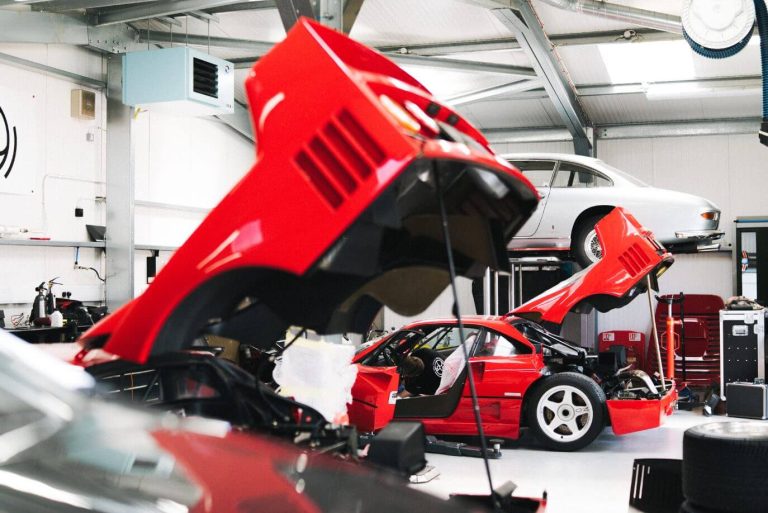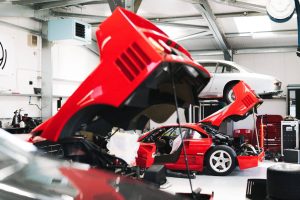Mercedes-Benz vehicles are built on decades of engineering development, combining advanced electronics, strong mechanical design, and innovative features. These vehicles stand apart not only in how they perform, but also in how they need to be maintained. While general repairs may be enough for most cars, Mercedes models demand specific tools, trained technicians, and an understanding of the systems that make them unique. That’s where specialist support for Mercedes Benz Repairs London becomes essential.
Why Brand-Specific Repairs Matter
Mercedes-Benz vehicles are not built like standard cars. Their systems are more interconnected, their service schedules are more detailed, and their software plays a central role in how each component behaves. Brakes, engines, suspensions, and even lighting systems are all monitored and controlled by electronic modules. If something fails, it’s often a result of complex interactions between mechanical wear and software signals.
Generic garages may not have the insight or equipment to handle these types of repairs accurately. Misdiagnosing a fault, using incompatible parts, or applying the wrong reset procedures can cause further issues down the line. Working with specialists who deal with Mercedes vehicles regularly reduces the risk of errors and ensures every repair aligns with the manufacturer’s standards.
Diagnostics: The Starting Point for Accuracy
When a warning light appears or something feels off in a Mercedes, the first step is always diagnostics. These vehicles use advanced onboard systems to monitor everything from fluid pressure to engine temperature, steering angle to fuel injection rates.
Specialist technicians typically use manufacturer-approved tools like Xentry Diagnostics the same system used by main dealers. This software connects directly to the vehicle’s control units, allowing real-time data analysis and access to hidden fault codes. It can pinpoint faults that general tools may miss or misread.
Accurate diagnostics mean fewer unnecessary repairs, lower costs, and a faster return to peak performance. It also ensures that any software-related issues are properly identified, not mistaken for mechanical failure.
Common Mercedes Repair Areas
Some of the most common repairs on Mercedes-Benz models involve a combination of wear and system alerts. These include:
- Engine faults or reduced power warnings
- Turbocharger or EGR valve issues
- Brake system malfunctions (including ABS and ESP systems)
- Automatic gearbox hesitation or shifting problems
- Suspension component wear, especially in air suspension models
- Injector problems and fuel delivery inconsistencies
- Battery and alternator faults
- Cooling system inefficiencies
- Sensor and module communication errors
In many of these cases, repairs go beyond simply swapping a part. They often involve reprogramming modules, resetting parameters, or coding new components to ensure full integration with the vehicle’s systems.
The Role of SCN Coding in Modern Repairs
One of the key aspects of working on newer Mercedes models is SCN coding (Software Calibration Number). This process is required whenever certain modules or electronic components are replaced. Without proper SCN coding, the vehicle may not recognise the new part or worse, it may trigger system malfunctions or warning lights.
SCN coding connects the vehicle to the manufacturer’s server and uploads specific configuration data. This ensures that any changes made during a repair align with the current software version and configuration of the vehicle. Only garages with access to the appropriate tools and systems can complete this step correctly.
Failing to complete SCN coding can lead to compatibility issues, repeated faults, or non-functioning features. This is why specialists trained in Mercedes-Benz repairs prioritise coding alongside physical repairs.
Servicing as a Preventative Repair Strategy
While repairs are reactive by nature, many issues can be prevented through structured servicing. Mercedes-Benz service schedules are designed around mileage, vehicle age, and usage type. These include Service A and Service B, each with its own set of checks and replacements.
Specialists follow these intervals closely, replacing filters, fluids, and worn components before failure occurs. These services also include diagnostic health checks, software updates, and inspections that can reveal early signs of wear.
Using the correct oil type, coolant, brake fluid, and other service parts is crucial. Mercedes vehicles are sensitive to the wrong fluid specifications, which can cause transmission problems, turbo failure, or overheating. Experienced technicians avoid these risks by working strictly within manufacturer guidelines.
Hybrid and Electric Model Repairs
As more Mercedes-Benz models enter the hybrid and electric space, the repair process has evolved. These vehicles include high-voltage systems, battery management modules, and regenerative braking components all of which require specific training and safety protocols.
Specialists working on these systems must use insulated tools, follow voltage isolation procedures, and understand how hybrid systems interact with the vehicle’s mechanical systems. For example, diagnosing a loss in range or performance requires software access and battery performance testing tools not available in most garages.
Whether it’s inverter replacement, cooling system repair, or software updates for hybrid drive systems, electric models demand a more technical approach. General repairs aren’t enough; they require an understanding of how every system supports overall vehicle efficiency and safety.
Gearbox and Transmission Repairs
One of the more complex areas in Mercedes-Benz repairs involves the transmission. Automatic gearboxes in these vehicles are tuned to specific driving profiles, and their performance is tied to electronic controls. If the gearbox begins to slip, shift harshly, or enter limp mode, accurate diagnostics and proper servicing are essential.
Specialists start with a scan to determine whether the fault is mechanical or software-related. They then inspect fluid levels, solenoid functions, valve body behaviour, and more. If a component is replaced such as the control unit or mechatronics it will often require SCN coding and adaptation using diagnostic software.
Transmission repairs also depend heavily on using the correct fluid type and replacement intervals. Using the wrong oil can cause early wear or failure, while skipping fluid changes can reduce gear smoothness and cause overheating.
Safety System Repairs
Mercedes-Benz vehicles include numerous advanced safety systems from collision avoidance to lane assistance and blind spot detection. When any of these systems malfunction, it can affect the driving experience or prevent the car from passing inspection.
Repairs in this area may involve sensor alignment, module replacement, or radar calibration. These tasks require specific tools and knowledge of system architecture. Technicians must also test the repaired system using controlled conditions to confirm proper operation.
Failure to address these systems correctly may lead to false alerts, system disengagement, or even legal compliance issues. That’s why experienced technicians treat safety systems as critical components of the vehicle.
Building Long-Term Reliability
Mercedes-Benz vehicles are built to last but only when they’re repaired and maintained properly. Working with specialists ensures that each fault is handled with care, each component is replaced with compatibility in mind, and each update is applied as required.
Owners who choose brand-specific support see fewer repeat issues, better long-term reliability, and greater confidence in their vehicle. Whether it’s software updates, major repairs, or simple system resets, Mercedes repair specialists help protect the performance and value of the vehicle.
Mercedes Benz Repairs London represents more than a search term. It reflects a growing preference among owners for focused expertise, technical accuracy, and a higher standard of care.













+ There are no comments
Add yours